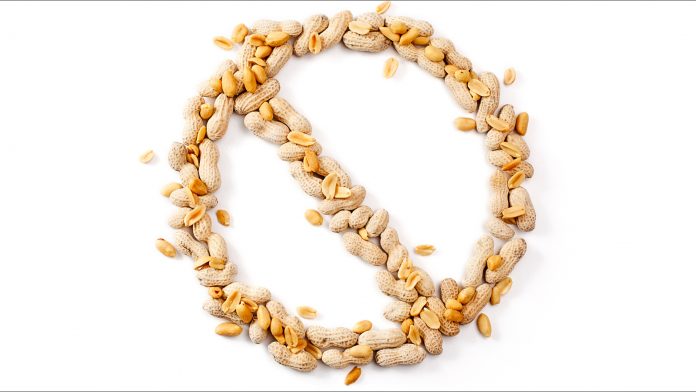
The results of the groundbreaking IMPACT trial have revealed that oral immunotherapy works effectively as a peanut allergy treatment, a potentially life-changing development for millions of people worldwide.
The IMPACT trial, funded by the National Institutes of Health (NIH), discovered that administering oral peanut immunotherapy to children aged between one and three who were highly peanut-allergic safely desensitised most of them to peanuts, inducing remission of peanut allergy in 20% of the children. The innovative peanut allergy treatment consisted of a dose of peanut flour used daily for 2.5 years.
The researchers defined remission as being able to eat 5 grams of peanut protein – the equivalent of 1.5 tablespoons of peanut butter – without having an allergic reaction six months after completing immunotherapy. The individuals who were most likely to achieve remission were the youngest children and those who started the trial with lower levels of peanut-specific antibodies.
The full results of the trial are published in The Lancet.
The IMPACT trial
In the United States alone, around 2% of children are affected by a peanut allergy, equating to 1.5 million individuals aged 17 and under. Ingesting a peanut is potentially life-threatening for these children, most of whom remain peanut-allergic for life.
The trial’s researchers identified that because immunotherapy can modify the immune system, implementing peanut oral immunotherapy in the development stages of the immune system may change a child’s immune response to peanuts. Moreover, prior studies elucidated that the peanut allergy treatment could safely be given to children and achieve a therapeutic effect.
IMPACT involved around 150 children aged between one and three at five academic medical centres in the US. Only children who demonstrated an allergic reaction after eating half a gram of peanut protein or less were eligible for the study. The individuals were randomly assigned to receive either flour containing peanut protein or a placebo flour, which were mixed with goods such as applesauce to hide their taste.
Over a period of 30 weeks, the children in the treatment groups had their dose increased gradually to up to two grams of peanut protein, the equivalent of around six peanuts, and went on to continue their daily dose for an additional two years.
Subsequently, the children took part in an oral food challenge where they ate gradually increasing doses of peanut protein up to a cumulative maximum of 5 grams; they then stopped the peanut allergy treatment and avoided peanuts for six months.
For the final stage of the trial, the children underwent a repeat oral food challenge eating 5 grams of peanut protein. The children who did not have an allergic reaction were then fed 8 grams on a different day to confirm they could eat peanuts without suffering an allergic reaction.
Performance of the peanut allergy treatment
At the conclusion of the peanut allergy treatment period, 71% of the children who received peanut flour were desensitised to peanuts compared to just 2% who received the placebo. Desensitisation was defined as eating 5 grams of peanut protein in the first oral food challenge without having an allergic reaction. Six months after avoiding peanuts following the treatment, 21% of children who received the peanut flour could eat 5 grams of peanut protein in the second oral food challenge, meaning they were in remission, whereas only 2% of the placebo groups were in remission at that time.
The team identified that lower levels of peanut-specific immunoglobulin E antibodies and being younger at the study’s inception predicted whether a child would achieve remission. Subsequent analysis revealed an inverse relationship between age at the start of the trial and remission, with 71% of the one-year-olds, 35% of the two-year-olds, and 19% of the three-year-olds experiencing remission.
Despite most of the children who received peanut flour having at least one dose-related reaction during the peanut allergy treatment, the majority were mild to moderate in severity. Twenty-one children received the rescue drug epinephrine for 35 moderate reactions to the peanut flour during the study period.







